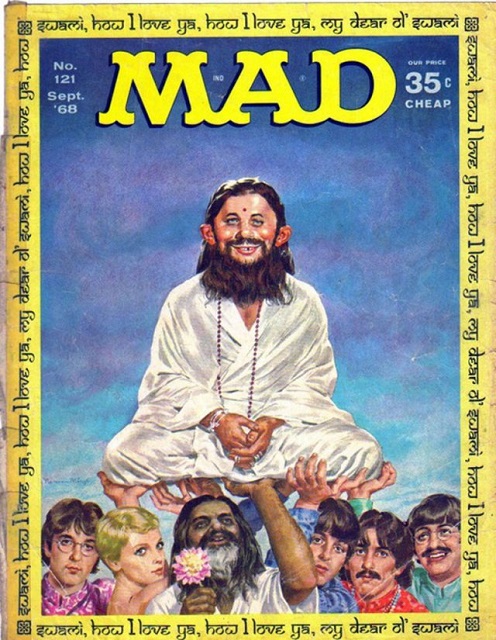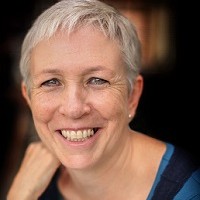
There are so many teachings, teachers and practices out there in the “spiritual marketplace.”
How do we find our way through the maze?
How do we discern what is right for us and avoid what may be unhealthy or even damaging?
Like many others, I spent years going to retreats, meetings and satsangs, reading books, watching videos and trying to sort the wheat from the chaff, spiritually-speaking.
Most teachers and teachings I came across seemed authentic, but a few were clearly lacking in integrity.
One episode in particular left me feeling foolish and ashamed. At a low ebb, I reached out to a spiritual teacher who wrote eloquently about awareness and oneness. At first, he responded to my questions with insight and understanding, but gradually the tone of his emails became more flirtatious and I allowed myself to be seduced into what became an e-affair. Flattered by his attentions yet deeply confused, it took me several months to end what was, in retrospect, a violation of the teacher/seeker boundary.
Even though I was left feeling disturbed, this encounter taught me a valuable lesson. It became abundantly clear that awakening, in itself, is no guarantee of personal transformation. That it is possible to have had a clear seeing of oneness and yet still be at the mercy of old patterns and conditioning.
In order to fully awaken we need to face our demons.
Nowadays I meet many sincere people who are willing to do the hard work of inner transformation and I’ve heard more disturbing stories about spiritual teachers. A few are out-and-out abusive, emotionally, sexually or financially. Some tell their followers what to do, who to have relationships with, where to live. Others seem oblivious to the fact that telling people to “just let it go” or accept it when “it” is deep pain or grief is really not that simple.
Don’t get me wrong.
I know there are many sincere teachers who offer profound teachings and practices that benefit thousands of people. These are teachers whose mature spirituality is respectful and compassionate. They meet us exactly where we are, and foster independent thought and action.
Mature spirituality enables us rather than creating dependency. It reveals our own divinity rather than demanding that we devote ourselves to another.
There is a wise Sufi saying: “Trust in Allah but tether your camel first, because Allah has no other hands than yours.”
In other words, we can use all our faculties—intellect and instinct included—to make our spiritual choices. When we are putting the welfare of our deepest selves in the hands of another, it makes sense to exercise caution.
So here are seven ways to tell if a teaching or practice is spiritually mature and trustworthy:
1. Mature spirituality embraces and honours every aspect of our being, including the intellect, the emotions and the body. In fact, mature spirituality is deeply embodied.
It is best to avoid spiritual teachings or practices that negate or deny any aspect of our experience. A teaching or practice that is dismissive of our thoughts, feelings or past history is unlikely to be healthy in the longer term. Beware phrases such as “those are just thoughts” or “you’re in your story.”
Mature spirituality enables us to truly meet and transmute our suffering rather than avoiding or glossing over it.
2. Mature spirituality recognises that we are all equal. We are all human, without exception, regardless of the spiritual insights or experiences we may have had. Teachers who claim to be more highly evolved or enlightened than you or I are likely to be suspect.
Spiritual teachings or practices that suggest levels or stages of attainment or that make you feel “less than” or “better than” are to be avoided.
3. Mature spirituality is ordinary. It does not demand that we retreat from the world or change our lives in any way.
Spiritual teachings or practices that seek to divide you from those around you or the wider world are unlikely to be healthy. We do not need to go to special places, do special things, wear special clothes or eat special food in order to be spiritual.
Any teaching that divides or categorizes—spiritual versus non-spiritual, higher versus lower, them or us—is likely to be immature.
4. Mature spirituality does not require us to be any different than we are in each moment. It does not seek to change us or demand that we behave in particular ways. And it certainly does not judge us or make us feel bad about ourselves.
If a teaching or teacher shames, blames, violates or belittles you, head for the hills. Trust your own gut instincts.
5. Mature spirituality honours all our responses and reactions, including resistance, hatred, anger and fear. There is deep wisdom and intelligence to be found in all aspects of our being. Mature spirituality understands that there is nothing we need to get rid of.
Avoid teachings that diminish or bypass pain and suffering. Beware glib sayings about forgiveness, acceptance, choice, love or surrender. Our defence and protection mechanisms are not a mistake; being in pain or suffering is not a matter of personal fault.
6. Mature spirituality allows us to become our own authority rather than being the disciple of another. It does not require us to take on someone else’s word, but creates the space in which we can investigate all our beliefs for ourselves and come to our own conclusions. In fact, mature spirituality invites and encourages us to inquire into all of our beliefs, including those we hold dearest.
Avoid teachings or practices which require you to believe.
7. Mature spirituality takes us right into ourselves and our lives just as they are, so we become more—not less—able to be fully present with whatever is here.
Mature spirituality is fully alive and open to all of life, to experiences of every hue. Tempting though it may, spirituality is not about wish-fulfilment or trying to bend the world to our will, nor is it an insurance policy against life’s vicissitudes.
Avoid teachings or practices that promise you can become a better person or have a better life (or afterlife).
The bigger the promise, the more likely it is to be bogus.
~
Author: Fiona Robertson
Image: Mad magazine cover
Editor: Khara-Jade Warren


 Share on bsky
Share on bsky




Read 1 comment and reply